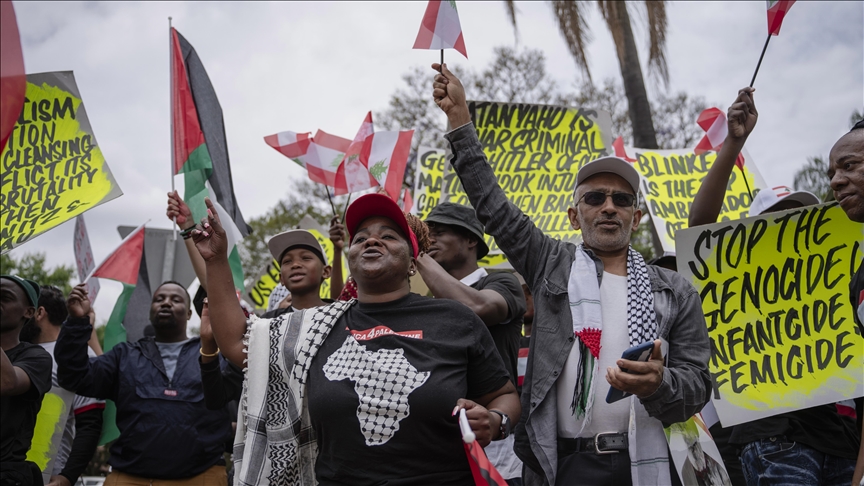A Bishop has said she experienced "coercive language" from two of the most senior figures in the Church of England.
Bishop of Newcastle Helen-Ann Hartley shared a letter, she said she received from the Archbishop of Canterbury and York, about Lord Semantu's return to the Church of England after a report into how he handled a child sex abuse allegation.
Bishop Hartley said her "experience of coercive language" when she read it indicated "a complete lack of awareness of how power dynamics operate in the life of the church".
Both the Archbishop of Canterbury and the Archbishop of York did not comment on Bishop Hartley's new statement.
Bishop Hartley's revelations come as the Archbishop of Canterbury Justin Welby faced pressure to resign over a damning report into a prolific child abuser associated with the church -John Smyth QC in the Makin review, external.
Bishop Hartley said she received the letter, external on the 31 October.
In it, Mr Welby and Mr Cottrell stated: "To be candid, we would very much like to see a resolution to this situation which enables Sentamu to return to ministry"
Bishop of Newcastle Helen-Ann Hartley said the decision to publish the letter "had not been taken lightly"
Lord Sentamu, the Former Archbishop of York, had been working as an honorary assistant bishop in the Diocese of Newcastle in 2023 when he was told to step down from the church.
At the time, he rejected the report's findings which said he failed to act on a claim made by a victim.
Bishop Hartley then banned Lord Sentamu from preaching in Newcastle, following his rejection of the report.
He did not respond to requests for a comment at the time.
'Right thing to do'
In a statement, Bishop Hartley said the letter being sent so close to the Makin review signified a "wider and systemic dysfunction of how the hierarchy of The Church of England has dealt with matters of safeguarding".
She said: "The decision to make this letter and its response public has not been taken lightly.
"Quite simply it is the right thing to do.” By Pamela Tickell, BBC








